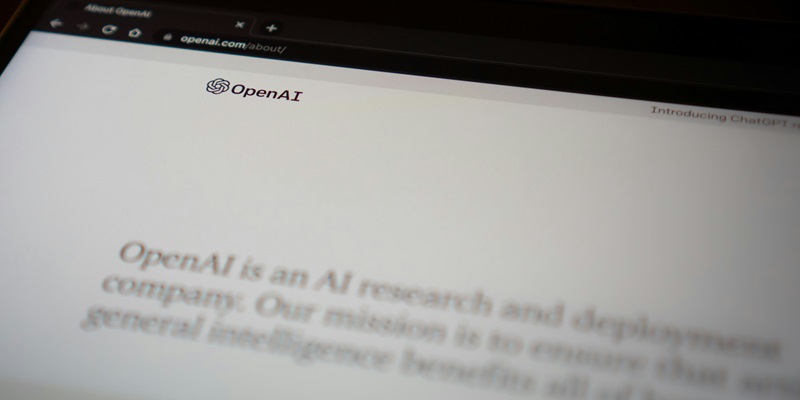The legal battle involving OpenAI and a group of authors has put a spotlight on the complex nexus between AI and copyright law. The crux of the issue lies in whether AI firms can use copyrighted materials to train their AIs without direct permission. The case, Silverman et al. v. OpenAI, Inc., represents a crucial test of how traditional copyright tenets apply in an era of rapid technological innovation. It serves as a critical example of the tensions that emerge as AI development intersects with intellectual property rights, compelling a reevaluation of legal protections in the digital age. This pivotal dispute is setting precedents for how AI companies interact with copyrighted content, with the potential to influence the boundaries of tech and law globally.
The Genesis of the Copyright Clash
At the heart of the Silverman et al. v. OpenAI, Inc. lawsuit are allegations that OpenAI utilized copyrighted texts from authors Sarah Silverman, Richard Kadrey, and Christopher Golden to train its sophisticated AI models, GPT-3.5 and GPT-4, without obtaining permission. The plaintiffs argue that this utilization for developing and enhancing ChatGPT, OpenAI’s conversational application, constitutes copyright infringement. They contend that their rights as creators have been sidestepped in the pursuit of AI development, setting a critical stage for the legal examination of AI’s consumption of creative works for algorithmic training.
Breaking Down the Court’s Ruling
In a notable legal development, U.S. District Court Judge Araceli Martínez-Olguín handed down a mixed ruling for OpenAI, dismissing four out of six copyright-related claims against the company. This outcome is significant as it leans toward an evolving legal perspective on AI and intellectual property, particularly around the training processes of AI systems. The judge’s decision retains two claims for further scrutiny under the California Unfair Competition Law, reflecting a careful consideration of fairness in AI development. This case may influence future legal standards on what is deemed fair use for AI in the rapidly advancing technological landscape. The industry is keenly observing as the court’s conclusions could redefine the boundaries of permissible use of copyrighted content for AI training.
Unpacking the Unfair Competition Law (UCL) Claim
The progression of the UCL claim is pivotal, as it challenges the fairness of OpenAI’s business practices. It asserts that the company’s use of copyrighted writings for profit—without consent—falls afoul of competitive integrity. With AI’s capacity to process and learn from large volumes of data, such claims probe deep into the philosophies driving copyright law, questioning whether traditional rules apply to the realm of machine learning and data training, where verbatim reproduction of texts is not the end goal.
The Outcome for Generative AI and Copyrighted Works
In a notable legal verdict, Judge Martínez-Olguín acknowledged that copyrighted texts were used in the training of OpenAI’s algorithms. However, the lack of solid proof of direct copying for profit meant that infringement wasn’t conclusively established. The significance of this outcome goes beyond this single case, touching on broader issues of how artificially generated content is viewed in legal terms. The nuances of AI’s interaction with copyright law are highlighted, especially concerning what constitutes a threshold for illegal use. This decision could pave the way for a permissive approach to copyright law as it applies to AI. If the outlook continues to be as forgiving as in this instance, it might lead to considerable legal protections for AI companies that engage in similar practices, effectively carving out a new permissible domain for the use of copyrighted material in the realm of artificial intelligence development.
The Intricacies of Copyright and AI Outputs
A key component of the dispute revolved around whether the summaries and potential derivative works generated by OpenAI’s AI could infringe upon copyright. The court leaned toward a non-infringement stance, underpinned by the reasoning that outputs created by ChatGPT do not necessarily qualify as derivative works in the eyes of the law. This decision has illuminated the complex delineations of copyright claims in the digital age, where AI’s capacity to create, summarize, and interpret could be argued as transformative rather than derivative.
What Lies Ahead for OpenAI and Copyright Law
The legal confrontation involving OpenAI is far from settled, with the potential for revised complaints that could redefine its course. This incident is part of a broader struggle addressing the tension between fostering innovation and upholding copyright laws. The implications are significant and wide-reaching. Legal judgments in the future will critically influence whether they will catalyze the creative sectors or give way to a tidal wave of AI-induced innovation without the constraints of existing copyright frameworks. The outcome of this ongoing saga holds immense implications for the future of intellectual property and the extent of freedom granted to AI technology in creative fields. It’s clear that the decisions made in courtrooms and through legislation will be crucial in setting the boundaries for innovation while preserving the essence of copyright in a digital era.
The Evolving Dialogue in the Creative Industry
As the legal battle unfolds, the implications reverberate through the creative industry. The scenario compels a pivotal moment of reflection on how content creation is being redefined in the age of artificial intelligence. The interplay of artistry and technological progress is becoming deeply interwoven, signifying a transformative era. The emerging dialogue between creators and AI innovators is crucial, setting the stage for a landmark discourse in our time. It’s a conversation that is expected to significantly influence the future of copyright law, delineating the extents of the burgeoning digital realm. This case not only addresses immediate legal questions but also lays the groundwork for the rules and ethics that will govern the relationship between human creativity and machine intelligence in shaping our cultural fabric.

